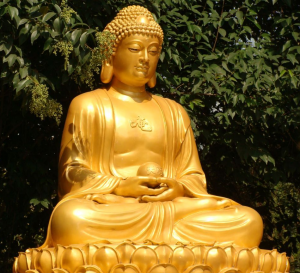I had another discussion with a different lightworker about whether lightholders are lightworkers. Only this time a different distinction was made.
Before setting out though, let me preface it with a general comment.
Roles like “lightworker” and “lightholder” are additive. We can be a lightholder and a lightworker.
At the same time, words themselves are symbols upon which we bestow whatever meaning we wish. We take words and make them mean what we want them to. It does no good to say we can’t do that.
Lightholders or lightworkers can be, and consider themselves to be, whatever they wish. Who could say that a lightholder cannot be a lightworker? No one. At least in a way that sticks.
At most, each side of the argument can gather to itself a community which holds to a meaning that they all agree to share. Those not in that community disagree on that meaning. All of what we’re speaking about concerns agreement. All of us enter into communities of discourse by agreement.
This person made an interesting point. Like numerous people I’ve spoken to, she holds the Light. She accepts Light beamed to Earth from central suns, higher dimensions, and ultimately Source, allows it to transit through herself, and down into the heart of Gaia. She considers it her lightwork to hold the Light. Hence her lightwork is to be a lightholder.
I hadn’t contemplated that meaning when I used the term “lightholder.” (1) What I meant by it was someone who’d chosen the path of meditation and contemplation, someone who’d chosen to go inwards and seek enlightenment, not a lightworker (because that’s what she was) holding the Light for Gaia.
Hindus would recognize what I’m referring to as perhaps “raja yoga.” Lightwork would be karma yoga. (2)
All largescale distinctions like these are only meaningful within a narrow range. They help us to choose paths, know what we’re doing, etc. But the moment they’re used for exclusionary purposes, they cease to be useful.
I’m not trying to exclude lightholders (I consider myself one too, by the way, as well as being a lightworker). I’m wanting to help us substitute clarity for confusion. But that’s all.
Philosophers recognize various erroneous actions we take to make sense of things. They name them reductionism, reification, and so on. In a sense, the work of spiritual scholars is to enhance and refine our distinctions so that they conform, ever closer, to Reality and we’re freed up from narrow thought confines.
We’ve discussed why this activity is so important. (3) It’s because the central act of existence for us is us, in a timeless moment of a future Now, discerning the Real from the unreal. For that moment of ultimate enlightenment was all this vast array of worlds, universes, and dimensions created.
In the end, the distinction between lightholders and lightworkers may simply serve to distinguish between those who, in this lifetime, are oriented towards projecting their consciousness inwards and those who are oriented towards projecting it outwards. At least that’s the way in which I’m using it.
I regard all articles I write as standalone. So I find I need to repeat a few things at times so that a person reading only this article will have that information. So, even though I’ve said it many times, I repeat that most if not all lightworkers are starseeds and/or celestials, from higher dimensions. We’ve already ascended in other lifetimes.
So there’s no need to fear that, if we choose lightwork or lightholding, we’ll be left out or left behind. Once we leave here, we return to our native dimensions – or higher. Our acts of service will not have us lose out. Nor would we lose out if we left for a Himalayan cave.
And of course what lightworker does not benefit from sinking within and experiencing bliss? And what lightholder does not benefit by serving the poor, the sick, and the lame?
It might help the most to see “lightwork” and “lightholding” as tools in our toolbox. One moment we reach for one tool. The next moment we may reach for the other.
Footnotes
(1) I’m not meaning to imply that I invented the term “lightholder.” I did not. The Company of Heaven probably did.
(2) Raja yoga includes meditation and contemplation; karma yoga involves seva or service. Someone will probably ask where a devotee or follower of bhakti yoga or devotion fits in. Well, again that’s another acceptable spiritual path or discipline. It isn’t the focus of attention for those who are building Nova Earth, not per se.
(3) “The Importance of Discernment in Life,” July 16, 2011, at https://goldenageofgaia.com/2011/07/17/the-importance-of-discernment-in-life/, is one such article.


